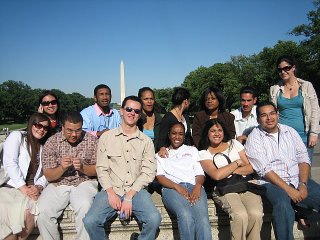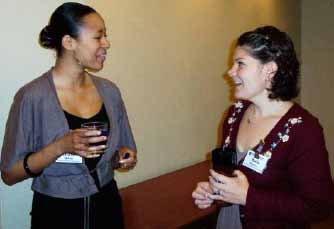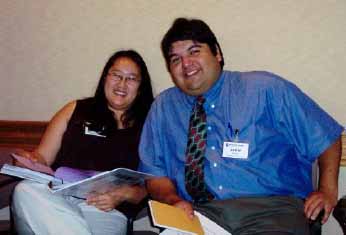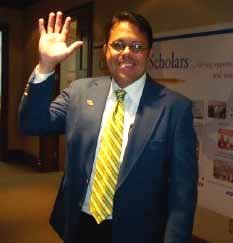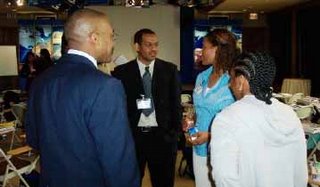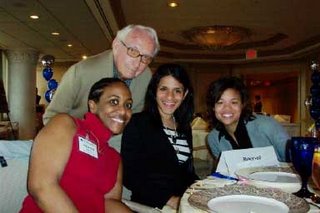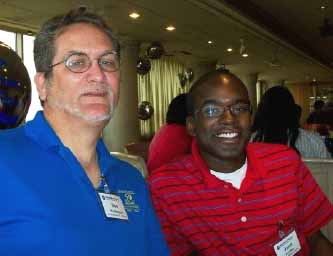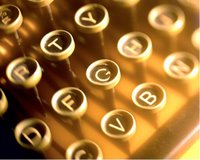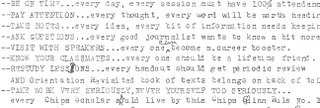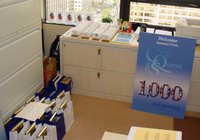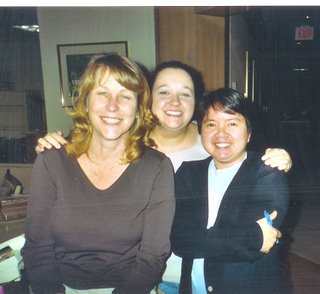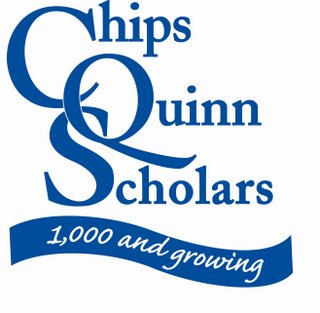The
Loie Legacy Award, in memory of the late
Loie Quinn, co-founder of the Chips Quinn Scholars Program, is given to program alums who have demonstrated the lessons she taught her son: “Care. Care. Care. Take it. Show it.”
The first recipients of the Loie Legacy Awards (aka Chips-Loie Hug Award) were named during the 27th Chips Quinn Scholars orientation May 18-22.
Charles Overby, Freedom Forum chairman, CEO and president, joined
John Quinn and his granddaughter,
Amelia Quinn Cellar, and program Director
Karen Catone in recognizing alums who have repeatedly returned to orientation to lead training sessions and who have mentored other young journalists.
This year’s recipients were:
*
Willie Allen Jr. (Spring 2002), photographer,
St. Petersburg (Fla.)
Times*
La Shinda Clark (Summer 1995), photo editor,
The Philadelphia Inquirer*
Kristen Go (Summer 1996 and 1997), assistant city editor,
The Arizona Republic in Phoenix
*
Rhina Guidos (Summer 1998), editor,
Mid State Living magazine, a publication of
The News Journal in Wilmington, Del.
*
Lina Hashem (Summer 1999), former copy editor,
The News Journal, Wilmington, Del.
*
Sean Jensen (Summer 1996), sports reporter,
St. Paul (Minn.)
Pioneer Press* Manny Lopez (Summer 1994), editorial writer,
The Detroit News*
Maria Montoya (Summer 1999), features reporter,
The Times-Picayune in New Orleans
*
Katie Oyan (Summer 1997 and Spring 2000), night supervisor, The Associated Press, Helena, Mont.
*
Sue Stock (Summer 2000), retail reporter,
The News & Observer, Raleigh, N.C.
At the end of the ceremony, John Quinn surprised Catone with an award of her own, referring to her as the lifeline of the Chips Quinn Scholars.
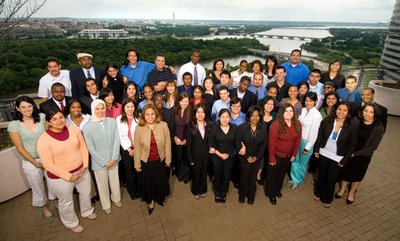 Summer '06 Chips Quinn Scholars
Summer '06 Chips Quinn Scholars 


